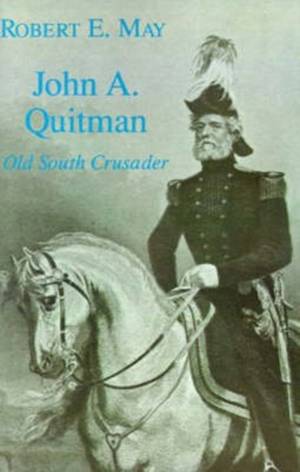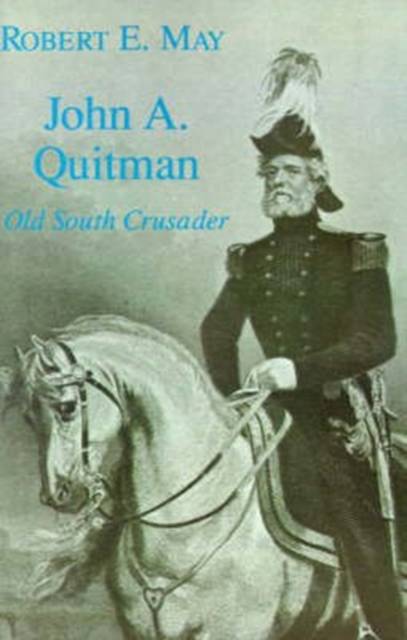
- Afhalen na 1 uur in een winkel met voorraad
- Gratis thuislevering in België vanaf € 30
- Ruim aanbod met 7 miljoen producten
- Afhalen na 1 uur in een winkel met voorraad
- Gratis thuislevering in België vanaf € 30
- Ruim aanbod met 7 miljoen producten
Zoeken
€ 45,95
+ 91 punten
Omschrijving
The premier secessionist of antebellum Mississippi, John A. Quitman was one of the half-dozen or so most prominent radicals in the entire South. In this full-length biography, Robert E. May takes issue with the recent tendency to portray secessionists as rabble-rousing, maladjusted outsiders bent on the glories of separate nationhood. May reveals Quitman to have been an ambitious but relatively stable insider who reluctantly advocated secession because of a despondency over slavery's long-range future in the Union and a related conviction that northerners no longer respected southern claims to equality as American citizens.
A fervent disciple of South Carolina "radical" John C. Calhoun's nullification theories, Quitman also gained notoriety as his region's most strident slavery imperialist. He articulated the case for new slaver territory, participated in the Texas Revolution, won national acclaim as a volunteer general in the Mexican War, and organized a private military--or "filibustering"--expedition with the intent of liberating Cuba from Spanish rule and making the island a new slave state. In 1850, while governor of Mississippi during the California crisis, Quitman wielded his influence in a vain attempt to induce Mississippi secession. Later, in Congress, he marked out an extreme southern position on Kansas. Mississippi's most vehement "fire-eater," Quitman played a significant role in the North-South estrangement that led to the American Civil War. The first critical biography of this important figure, May's study sheds light on such current historical controversies as whether antebellum southerners were peculiarly militaristic or "antibourgeois" and helps illuminate the slave-master relations, mobility, intraregional class and geographic friction, partisan politics, and family customs of the Old South.Specificaties
Betrokkenen
- Auteur(s):
- Uitgeverij:
Inhoud
- Aantal bladzijden:
- 504
- Taal:
- Engels
- Reeks:
Eigenschappen
- Productcode (EAN):
- 9780807112076
- Verschijningsdatum:
- 1/04/1985
- Uitvoering:
- Paperback
- Formaat:
- Trade paperback (VS)
- Afmetingen:
- 152 mm x 229 mm
- Gewicht:
- 730 g

Alleen bij Standaard Boekhandel
+ 91 punten op je klantenkaart van Standaard Boekhandel
Beoordelingen
We publiceren alleen reviews die voldoen aan de voorwaarden voor reviews. Bekijk onze voorwaarden voor reviews.











